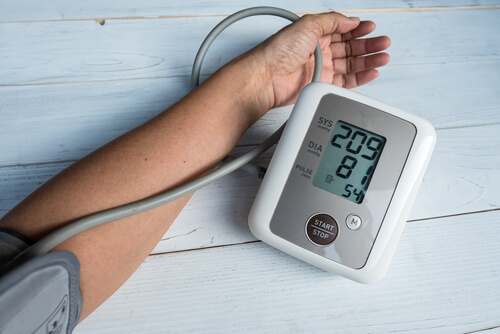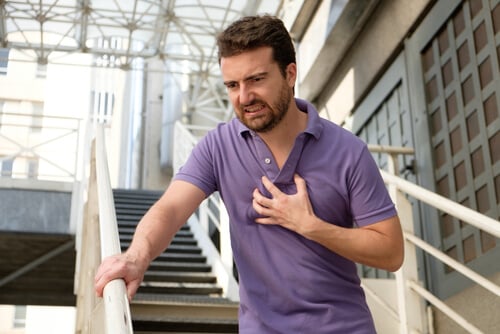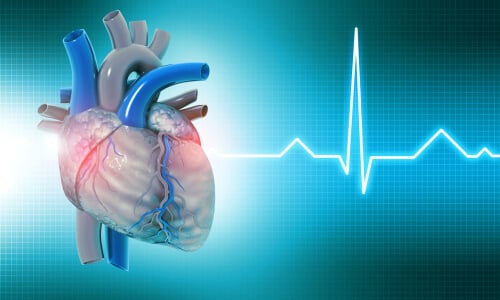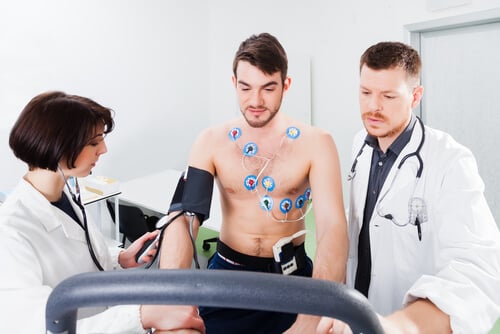
Are there a lot of dangers of high blood pressure on your body?
High blood pressure is also called a “silent killer “
Half of the people with untreated hypertension die from coronary artery disease,
One-third die from stroke.
Lifestyle modification with medical treatment can help to control the hypertension and so to reduce your risk of life-threatening complications, which include:
I – Effect on the arteries
the normal artery is flexible, strong and elastic so when you lose some of these nice characteristics you will be in trouble. hypertension gradually increases the pressure of blood flowing through arteries so it may cause:
- Damaged and narrowed arteries, a tear in the intima if it associated with lipid deposit lead to increase stiffness and decrease blood flow through the body.
- Aneurysm, over time there would be some section in the wall and bulge (aneurysm), which can rupture and cause life-threatening bleeding especially in the aorta.
II – Effect on the heart:
- Coronary artery disease: Due to the damage of the artery wall the coronary blood flow will diminish so the patient gets chest pain – heart attack – irregularity of heartbeat (arrhythmia).
- Hypertrophy of the left ventricle: This is the main pump pushing the blood against high resistance which leads to increased thickness and stiffness of the left ventricle.
- Failure of the pump: when there is a strain on the heart by high blood pressure it will cause the heart muscle to become weaker and work less efficiently and so the heart fails to push an adequate amount of blood to the tissues.
III – Effect on the brain
hypertension can cause many problems on the brain like:
- Transient ischemic attack (TIA) it is a brief, temporary decrease in blood supply to the brain, it may be due to atherosclerosis or a blood clot, TIA It is a warning of stroke on its way sometimes.
- Stroke either: -hemorrhagic a weakened artery burst(leakage) in the brain, or
- Ischemic a clump or clot of plaque comes loose and blocks blood flow to brain cells.
Main symptoms:
- Face dropping, Arm weakness, and Speech problems.
- Dementia a problem in thinking, speaking, reasoning, memory, vision and movement. Narrowing and clogging of arteries can slow the flow of blood to the body including brain, high blood pressure may be the culprit. Dementia may be:
- Vascular dementia result from narrowing of cerebral and vertebral arteries, or
- Result from Stroke due to interruption of blood supply to brain.
- Mild cognitive impairment (Alzheimer’s) is transition stage between the change in understanding and memory. It is a result of artery damage due to hypertension.
IV – Effect on kidneys hypertension may damage both:
- Large arteries which supply the blood to kidneys, or
- Tiny blood vessels within the kidneys (Glomeruli).
The result would be:
- Renal failure: hypertension is the most common cause for renal failure.
- Glomerulosclerosis is due to scarring of glomeruli which leads to kidneys becoming unable to filter waste effectively.
- Renal artery aneurysm in time due to hypertension some sections occur in the arterial wall and enlarge and bulge to become an aneurysm with a risk of rupture and can cause catastrophic bleeding.
V – Effect on eyes it may cause:
- Retinopathy is due to damage to the blood vessels which supply the blood to the retina, it can cause bleeding in the eye, blurred vision and complete loss of vision.
- Choroidopathy fluid builds up under the retina due to vascular leakage which impairs vision.
- Optic neuropathy due to ischemia of the optic nerve.
VI – Sexual dysfunction
- Men erectile dysfunction due to atherosclerosis or from some antihypertensive medicine like methyldopa, beta blocker, and diuretics.
- Women may suffer from sexual dysfunction due decrease blood flow to the vagina by hypertension's effect on blood vessels.
VII – other effects
- Osteoporosis HBP may cause loss of bone density, which may lead to broken bones, especially in older women.
- Obstructive sleep apnea: snoring loudly occurs in more than 50% of hypertensive patients, so Hypertension may cause sleep apnea and vice versa.
Topic: cardiology




.jpg)




Leave a comment